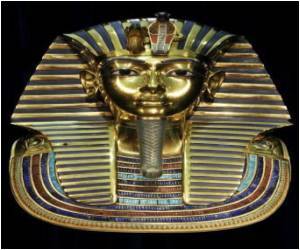It may sound surprising, but records from 3,500 years ago revealed how ancient Egyptians too, predicted the weather

The inscription could provide new evidence about the chronology of events in the ancient Middle East.
Two scholars at the University of Chicago's Oriental Institute - Nadine Moeller and Robert Ritner - believe the unusual weather patterns described on the slab were the result of a massive volcano explosion at Thera - the present-day island of Santorini in the Mediterranean Sea.
"This is important to scholars of the ancient Near East and eastern Mediterranean, generally because the chronology that archaeologists use is based on the lists of Egyptian pharaohs, and this new information could adjust those dates," explained Moeller, an assistant professor of Egyptian archaeology at the Oriental Institute.
The new translation suggests the Egyptian pharaoh Ahmose ruled at a time closer to the Thera eruption than previously thought - a finding that could change scholars' understanding of a critical juncture in human history as Bronze Age empires realigned.
The Tempest Stela dates back to the reign of the pharaoh Ahmose, the first pharaoh of the 18th Dynasty.
Advertisement
Until now, the archaeological evidence for the date of the Thera eruption seemed at odds with the radiocarbon dating, explained Oriental Institute post-doctoral scholar Felix Hoeflmayer.
Advertisement
The research appeared in the Journal of Near Eastern Studies.
Source-IANS








